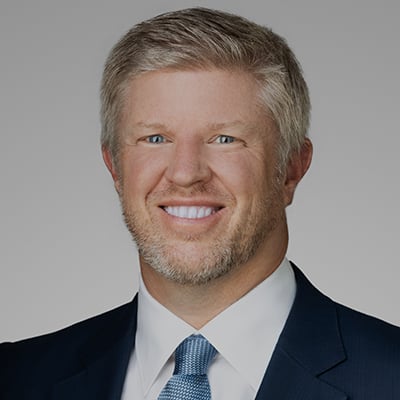Litigation Department of the Year, Groundbreakers: Adam Alper
For years the question was only academic: What would happen if a dispute over fair, reasonable and non-discriminatory licenses for a standard-essential patent went to court? Kirkland & Ellis partners Adam Alper and Michael De Vries helped create the reality in 2013 when Cisco and other manufacturers sued IP licensing company Innovatio IP Ventures LLC for breaching a FRAND commitment. Alper and De Vries turned the tables on an aggressive nonpracticing entity that began by demanding $2,500 per WiFi location and ended up settling for about 3 cents per allegedly infringing chip.
Judge James Holderman agreed to decide the damages issue first. Who proposed that and what was the thinking?
Alper: We raised a request to the court early on that it require the parties to submit damages contentions, and also put in place a procedure to allow the parties to tee up and resolve key damages disputes. We felt that could be very important to potentially narrowing the case, especially considering that there were a large number (23) patents-in-suit. The court was amenable to the idea but wanted us to proceed through discovery first. Ultimately, we were on the verge of commencing the claim construction briefing on all 23 patents, which is a large number for a single patent litigation. Even though we felt very strongly about the merits of our positions on liability, proceedings on claim construction and liability would be highly resource intensive, especially considering the large number of end user parties involved, and we saw a much more streamlined and direct path for resolution through a specialized proceeding on FRAND damages issues. So we proposed that we put off claim construction and liability, and instead proceed with damages. We knew this would not be a surprise to the court, since we had continuously pushed damages issues throughout the case. The court agreed that the time had come to resolve the key damages issues, and set two trials on damages and FRAND.
There were two trials on damages?
Alper: Yes. The first trial was to determine if the patent claims were essential to the standard at issue and thus deserving of FRAND treatment. The court determined that all the claims were essential. This was the first trial on essentiality that we are aware of, and it was a very interesting proceeding. The second trial was a FRAND royalty trial to set the FRAND royalty rate. This too was a significant, relatively new procedure. After hearing fact and expert testimony from the parties, the court delivered a landmark opinion that enunciates many important FRAND principles and sets forth a concrete approach to setting a FRAND royalty rate.
Holderman came up with a 9.5 cent FRAND rate, and you ultimately settled for quite a bit less, because you still had claims for breaching the FRAND commitment.
De Vries: I think everyone on our side felt good about where we ended up. We felt that the entire progress of the Innovatio licensing campaign and its targeting of end users [contributed to] a strong breach of RAND claim.
We've now got an appellate decision on FRAND from the Federal Circuit and others from the district courts. Do you feel were able to help set the tone on this issue?
De Vries: I think that's definitely the case. There have been a number of decisions that seem to be coalescing around a set of principles to be applied when you end up in [these circumstances]. The core principles that were embodied in the Innovatio outcome — like the need to take into account all of the patented technologies within a standard and separate those technologies from the discrete feature covered by a particular patent, and that any value for a particular patent has to be limited to the value of the feature covered by that patent and not be based on the value of the standard itself — we're definitely seeing those same principles elsewhere.
REPRINTED WITH PERMISSION FROM THE APRIL 24, 2015 EDITION OF THE RECORDER © 2016 ALM MEDIA INC. ALL RIGHTS RESERVED. FURTHER DUPLICATION WITHOUT PERMISSION IS PROHIBITED


